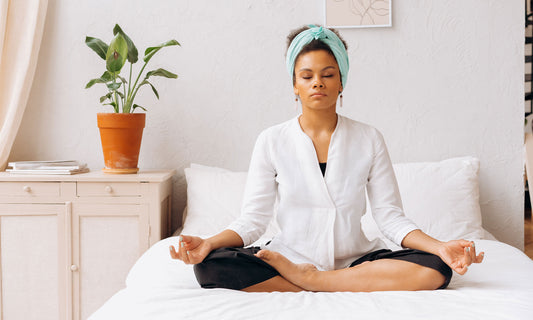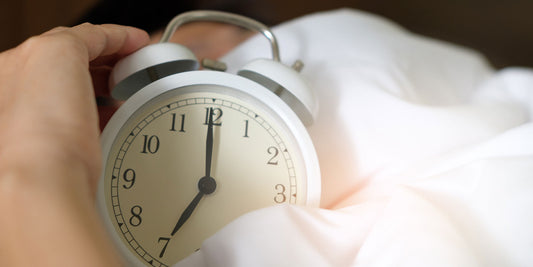It’s not unheard of that as we get older our time spent sleeping reduces, however it’s important to know what we’re missing out on when we are sleeping less…
According to a sleep study by Fitbit, as well as our total length of sleep reducing, so does the percentage of deep sleep that we get.
What do we mean by deep sleep?
Also known as slow-wave sleep, deep sleep is the most restorative stage that we experience whilst we sleep. It typically makes up around 13-23% of our total sleep.
This is where we are at our most relaxed, our breathing and heart rate have slowed, and we usually find it more difficult to awaken. You can usually tell when you’ve been woken whilst in the deep sleep stage as you’re more likely to feel groggy and need a little longer to come around.
The deep sleep stage typically takes place in the first half of our total sleep. This is because the body prioritises deep sleep to give us the greatest opportunity to experience the restorative properties of the deep sleep stage.
How does deep sleep benefit us?
Naturally, after roughly 16 hours of being awake both our minds and bodies are ready for some rest. Each of the different sleep stages are designed to provide us with the necessary recovery needed for us to start again the following day.
The deep sleep stage is when our bodies begin to work to repair on our muscles, organs and both nervous and immune system. A sign you aren’t getting enough deep sleep is still feeling tired after a full nights sleep.
What happens when we don’t get enough deep sleep?
Not only do our bodies miss out on all the important recovery benefits, but our brains may also struggle to process our experiences from the day before into memories. There are also further health risks associated with a lack of deep sleep. There are know to be suggestions in a link between lack of deep sleep to potentially mental health issues, and diseases such as Alzheimer’s.
A lack of deep sleep contributes to the dysfunction of our immune systems, including routine infections, common colds and even cardiovascular disease.
How can we get more deep sleep?
Ultimately, there is no sure way of increasing the amount of time we spend within the deep sleep stage. However, we can look to improve our overall sleep, whether this is time spent asleep or modifying our sleeping habits/ sleeping environment.
Here’s a few tips on how to do just that:
- Stick to a routine, even on the weekend – Ask yourself are you going to bed at the same time each night, and getting the recommended hours of sleep?
- Turn your bedroom into a relaxing stress-free zone – Try to keep your bedroom at a cool temperature, and look to minimise excessive noise or light
- Be mindful of your activity levels before you go to sleep - Being active during the day can help to encourage our body into recovery. As little as 20 minutes a day can make a huge difference, not just to your sleep but your overall health, just try not to exercise too close to bedtime or you may find it difficult to relax
Remember, we are all different. However, spending some time finding your optimal sleeping conditions can help you when it comes to bedtime, even when you’re not feeling tired. At Opera, we know how important sleep is and finding the most relaxing and comfortable sleeping position can take time.
Adjustable beds in the Hugel range have an electrically adjustable backrest and leg rest for comfort and spinal support. The Plus base upgrade has additional adjustable sections for maximum flexibility and to ensure quality sleep through proper posture. The intelligent memory function allows you to program your ideal lying/sitting positions at the touch of a button.
The Hugel Bed Range
Try our adjustable beds and mattresses at a retailer near you.
Find out how Hugel could help you with your bed needs.
Contact us, or speak to our experts advisors on 0333 222 1804




